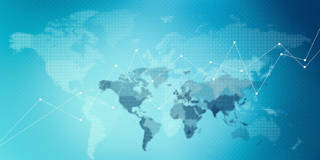 Sean Gladwell/Getty Images
Sean Gladwell/Getty Images
反资本主义的贫困
Harold James
普林斯顿—我们的世界变得一片混乱。国际经济运行顺畅,但政治经济却深深陷入对市场的敌意、对全球化的失望和对增长的怀疑之中。上述理念相互作用并相互强化。即使全球精英阶层的很大部分也在为市场、全球化和增长的所谓失败而苦恼。
可以轻易看出对市场的敌意来源于何处。市场依赖于价格,但价格已成为许多人焦虑和困惑的源头。不仅价格一直在上涨,而且21世纪的许多奇迹根本就不存在公认的价格。消费者现在已经习惯于通用网络连接和搜索引擎等免费服务。消费者可以下载或播放无限量的娱乐节目,而他们自己就处在新闻媒体的包围之中——他们无需付费就可以享受绝大多数服务(至少从传统意义上讲是这样)。在许多国家,人们显然也接受免费的医疗服务。就连美国臭名昭著且价格昂贵的医疗系统也免费提供新冠疫苗和检测。
与此同时,扩张性财政和货币政策,再加上疫情和俄罗斯入侵乌克兰所导致的供应链破坏一直在加剧通胀,导致日常生活(能源化、粮食和住房)感觉更加昂贵。我们未来的愿景是一切都将免费,但目前所面临的现实却令人感到难以承受和充满剥削。随着民众要求政府干预以缓和或逆转价格上涨,政治家面临着无法抗拒的巨大压力来加以应对。
https://prosyn.org/LOMzj5tzh
To continue reading, register now. It’s free!
Register Now
Already have an account?
Log in



普林斯顿—我们的世界变得一片混乱。国际经济运行顺畅,但政治经济却深深陷入对市场的敌意、对全球化的失望和对增长的怀疑之中。上述理念相互作用并相互强化。即使全球精英阶层的很大部分也在为市场、全球化和增长的所谓失败而苦恼。
可以轻易看出对市场的敌意来源于何处。市场依赖于价格,但价格已成为许多人焦虑和困惑的源头。不仅价格一直在上涨,而且21世纪的许多奇迹根本就不存在公认的价格。消费者现在已经习惯于通用网络连接和搜索引擎等免费服务。消费者可以下载或播放无限量的娱乐节目,而他们自己就处在新闻媒体的包围之中——他们无需付费就可以享受绝大多数服务(至少从传统意义上讲是这样)。在许多国家,人们显然也接受免费的医疗服务。就连美国臭名昭著且价格昂贵的医疗系统也免费提供新冠疫苗和检测。
与此同时,扩张性财政和货币政策,再加上疫情和俄罗斯入侵乌克兰所导致的供应链破坏一直在加剧通胀,导致日常生活(能源化、粮食和住房)感觉更加昂贵。我们未来的愿景是一切都将免费,但目前所面临的现实却令人感到难以承受和充满剥削。随着民众要求政府干预以缓和或逆转价格上涨,政治家面临着无法抗拒的巨大压力来加以应对。